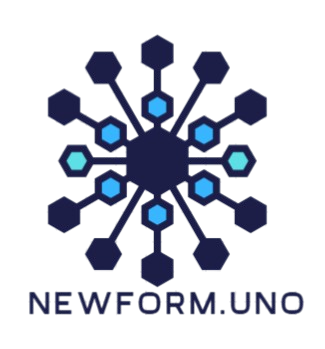Understanding the Digital Sphere
The digital sphere is rapidly evolving, significantly transforming various aspects of everyday life and industry practices. This dynamic landscape encompasses an array of technologies, including artificial intelligence, machine learning, data analytics, and cloud computing, all of which are driving substantial changes in how organizations operate and connect with consumers. As businesses increasingly adopt these technologies, it is critical to understand how they influence productivity, efficiency, and overall strategic direction.
Key trends shaping the digital landscape include the rise of remote work, which has created a demand for digital collaboration tools and platforms. Organizations are investing in upskilling their workforce to ensure they possess the requisite digital skills to navigate this new work environment. Additionally, the proliferation of e-commerce has necessitated a deeper understanding of digital marketing strategies, as businesses must effectively reach and engage customers online. These trends highlight the necessity for individuals to adapt and acquire digital competencies that align with current and future job market demands.
In this context, the importance of digital skills cannot be overstated. A lack of proficiency in digital tools can hinder career progression and limit job opportunities. As employers increasingly prioritize candidates with strong digital expertise, it is vital for professionals to invest in digital education to remain competitive. Organizations are actively reshaping their training programs to prioritize digital literacy, recognizing it as a key asset for successful employees. Consequently, the emphasis on digital skills in educational curricula is on the rise, reflecting the growing necessity for a workforce that is well-versed in the ongoing digital revolution.
Essential Digital Skills for the Future
In today’s rapidly evolving job market, possessing essential digital skills is crucial for individuals aspiring to thrive in various professional landscapes. Core competencies such as data analysis, digital marketing, programming, and cybersecurity are pivotal in shaping one’s career trajectory. Each of these skills plays a significant role across multiple fields, making them indispensable in the digital age.
Data analysis has emerged as a fundamental skill due to the increasing importance of data-driven decision-making. Professionals who can interpret and analyze data can help organizations make informed choices, leading to improved strategies and operational efficiencies. For instance, data analysts in sectors ranging from healthcare to finance leverage data to identify trends and insights that guide business operations.
Similarly, digital marketing proficiency is essential as businesses transition to online platforms. With the rise of e-commerce and social media channels, individuals equipped with the knowledge of SEO, content marketing, and social media strategies can significantly enhance a company’s online presence. This skill not only boosts traffic and engagement but also fosters customer loyalty, which is vital for sustained growth in today’s competitive market.
Programming is another cornerstone skill that empowers individuals to develop software applications, automate processes, and improve overall productivity. With coding languages like Python and Java being in high demand, professionals with programming knowledge can contribute to innovative projects in tech industries, finance, and even art.
Finally, cybersecurity skills are paramount as the reliance on digital platforms increases. Understanding how to protect sensitive information from cyber threats is vital for all organizations. With the growing incidences of data breaches and cyberattacks, individuals trained in cybersecurity can safeguard their companies’ interests and ensure compliance with regulatory standards.
By developing competencies in these essential digital skills, professionals can enhance their employability and adapt to the ever-changing demands of the workforce, positioning themselves for success in the digital era.
Top Courses and Certifications to Consider
In the rapidly evolving digital landscape, acquiring relevant skills is paramount for personal and professional advancement. Numerous courses and certifications are available that not only enhance one’s credentials but also align with industry needs. One prominent option is the Google Digital Garage, which offers a free course on digital marketing fundamentals. This program covers essential concepts such as search engine optimization (SEO), social media marketing, and data analytics, equipping learners with the necessary skills to navigate the digital world effectively.
Another notable course is the IBM Data Science Professional Certificate available on Coursera. This comprehensive program consists of nine courses that cover various aspects of data science, including programming with Python, data visualization, and machine learning. By completing this certification, learners are well-positioned for roles in data analytics, a field that is increasingly in demand across industries.
Furthermore, the Certified Information Systems Security Professional (CISSP) certification offered by (ISC)² is essential for professionals aiming to specialize in cybersecurity. This globally recognized certification ensures that seekers understand high-level concepts related to information security, risk management, and cloud security, addressing the crucial need for skilled cybersecurity experts in today’s digital environment.
For those interested in web development, the Full-Stack Web Development Specialization offered by the University of Michigan on Coursera is worth exploring. This program instructs participants on front-end technologies, server-side programming, and deployment processes, thereby preparing them to build and maintain complex web applications.
Finally, the Project Management Professional (PMP) certification from the Project Management Institute (PMI) is highly sought after, particularly for individuals interested in managing digital projects. This course focuses on essential project management principles and methodologies, preparing graduates to effectively lead projects within the tech sector.
Overall, selecting the right course or certification can significantly impact one’s ability to thrive in a digital economy, equipping them with practical skills that are aligned with current industry trends.
Success Stories: Real-World Impact of Digital Education
The landscape of education has dramatically shifted with the rise of digital learning platforms. Numerous individuals have turned to online courses to revitalize their careers, and their success stories exemplify the tangible benefits of investing in digital education. For instance, Sarah Thompson, a former marketing assistant, enrolled in a digital marketing program offered by a renowned online academy. With the knowledge gained from this course, she transitioned into a digital marketing manager role within six months, tripling her salary in the process. Her experience illustrates how targeted digital courses can unlock new career opportunities.
Another compelling case is that of David Liu, who was working in a traditional office job with little advancement potential. After completing a coding bootcamp focused on web development, David secured a position as a full-stack developer at a tech startup. His ability to create high-quality websites and applications directly resulted from the skills acquired through his digital education. This case highlights how practical, project-based learning can directly correlate with employability in rapidly growing fields.
These success stories are not isolated; they reflect a broader trend where individuals are seizing opportunities to enhance their skills through online courses. To leverage these educational experiences in the job market, aspiring learners should focus on building a portfolio showcasing their projects and abilities gained from course work. Networking within online communities or social media platforms can also open doors to potential job leads.
In summary, real-world testimonials underscore the impact of digital education on career advancement. Those who take advantage of these opportunities can expect to see significant results in their professional journeys. By applying acquired skills and actively engaging with industry communities, individuals can capitalize on the benefits of their digital learning experiences to stand out in a competitive job market.


No responses yet